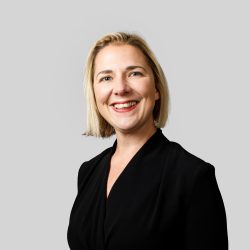Family Dispute Resolution
What is Family Dispute Resolution?
Dispute Resolution, or “DR” for short, means achieving a final outcome in your case by means other than using a Judge to decide the issues for you and imposing her or his decision on you. The following are the various forms of DR. We provide specialist barristers in all of them.
Mediation
This is facilitated negotiation, in which both sides work together to find a settlement with a help of a trained and qualified mediator. We have qualified mediators who work though out the North of England, and beyond.
Collaborative Law
The collaborative process helps separating couples to reach agreement on financial settlements, arrangements for children and any other issues arising from relationship breakdown. Each party consults a specialist lawyer and the four of them formally agree not to go to court. Negotiations take place at one or more meetings which are usually face to face but can be conducted remotely. Other professionals, such as financial advisers, can be invited to meetings to provide specialist information (Eg with regard to pensions). The process moves at the pace the parties decide and, by focusing on what matters most to them and their family, it helps them to negotiate arrangements which will work for them. We have specialists who can provide this support.
Settlement Meeting
Sometimes called a “Settlement Conference”. This is where the parties and their lawyers meet away from court in a neutral setting and negotiate. This can happen at any stage in their case before a final hearing. The usual procedure is for each party and their lawyers to be in separate rooms, and for the lawyers to meet in a third room to negotiate on their behalf. The advantage is that they can have arms-length negotiation at a place and a time agreed, and they can spend as much time as they want to achieve a settlement. The lawyers will then inform the court that the case is settled and send in the necessary paper work to conclude the case without further attendance the parties, or expense. All our specialist barristers are extremely experienced in this.
Private Financial Dispute Resolution Appointment, or “Private FDR”
This is based on the procedure for Family Financial cases at court, in which virtually every case has Financial Dispute Resolution hearing (“FDR”) held by a judge. The judge will provide an ‘off the record’ assessment of the case and its possible outcome after hearing arguments from both sides, usually via their lawyers. The parties will then use the assessment to help negotiate a settlement, hopefully the same day. The lawyers will then prepare the paperwork for the court to conclude the case without the need for any further hearing. With a private FDR appointment, you will have a hearing, attended or remote via whatever platform you agree to use (for example Zoom), as long as it is recordable, and the judge will only have your case to deal with, and for as long as you want her or him available. So, you can ask the judge for comment at any stage you choose, about any part of your case. Also, you select your own Judge, and the date when the appointment takes place.
Your private FDR judge will be an experienced Barrister who specialises in family financial cases. He or she may be a Deputy District Judge or Recorder who hears this kind of case in the courts, or a Family Arbitrator. FDRs happen once all the necessary evidence has been gathered and exchanged, normally following a First Directions Appointment at the court. A private FDR can be arranged at the earliest convenient date for you after that.
Early Neutral Evaluation (“ENE”) by Private FDR Judge
At any stage before or during proceedings, if the parties agree, and the case is appropriate for it, a private FDR Judge can be instructed by them for an ENE which can be can be conducted on paper only. The ENE can be arranged before court proceedings have been started, at any stage of those proceedings, or as part of an arbitration process.
The cost of an ENE would be similar to those of an FDR, but there would not be the cost to you paying for lawyers to attend at an appointment.
Family Arbitration
This is not to be confused with Mediation. In fact, it is the type of ADR that can be nearest to a contested hearing in court, up to an including a trial with evidence from witnesses, speeches by lawyers and a judgment (which is called a determination). It is appropriate where you would need a decision made for you by a judge but the court cannot provide a hearing date at a convenient time, or without considerable delay. Arbitration can take place at virtually any stage and at very short notice. This may be necessary where you need an urgent decision about short term maintenance, called Maintenance Pending Suit (or “MPS”). This might be achieved by both sides putting their arguments in writing to the Arbitrator who would provide a written determination within hours or receiving them. It is also suitable as an alternative to a final hearing, or trial, if a Financial Dispute Resolution Hearing, or private FDR, has failed to achieve a settlement. As with a private FDR, you choose your Arbitrator and the date when you want the Arbitration to happen. Additionally, though, you can also agree the procedure and the issues to be determined. After the Arbitrator has made the determination it is turned into a court order like any other.
Our Family Arbitrators are senior specialist Barristers who have undergone training and achieved accreditation by the Institute of Family Law Arbitrators (see IFLA.org.uk). Sometimes they are also part time Judges or Recorders. The cost for an Arbitrator in the North East and Teesside would depend on the particular case, but would start at £500 plus VAT for an MPS Arbitration, or other matter that could be dealt with in a similar way, and £1,500 plus VAT per day for a final hearing, or trial type, Arbitration (inclusive or any preliminary ‘scoping’ hearing to agree issues, and final written Award). Each party would pay half of the fee, payable in advance.
Some of our Arbitrators are also accredited to deal with disputes about arrangements concerning children of the family.
Barristers who practice in this area of law

Year of Call: 1979

Year of Call: 1990

Year of Call: 1995

Year of Call: 2001

Year of Call: 2002

Year of Call: 2004

Year of Call: 2005

Year of Call: 2009

Year of Call: 2010

Year of Call: 2012

Year of Call: 2018
Please contact our clerks for further details.


